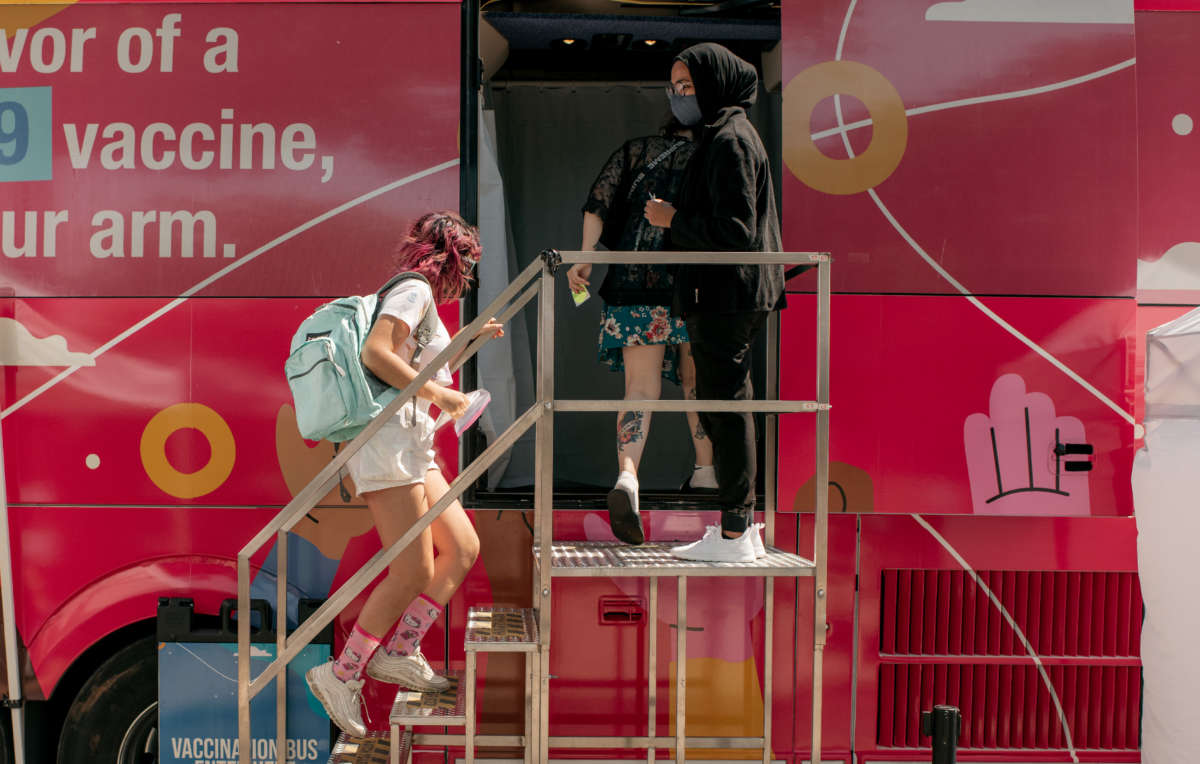The Food and Drug Administration (FDA) expects to authorize booster shots for children ages 12-15 early next week, sources within the agency say.
Pfizer/BioNTech booster shots for young teenagers were supposed to be authorized this week, but the authorization was delayed due to holiday-related scheduling conflicts within the FDA.
If the booster shots are authorized by the FDA, the agency will share the data that led to the authorization with the Centers for Disease Control and Prevention (CDC). Boosters can be administered to children ages 12-15 within days of the final authorization by CDC director Rochelle Walensky.
Walensky has indicated that if the CDC agrees with the FDA’s findings, she will authorize the boosters immediately.
“The CDC will swiftly follow [the FDA] as soon as we hear from them, and I’m hoping to have that…in the days to weeks ahead,” she said on Wednesday.
The federal government has already authorized vaccine boosters for older teens. But many parents fear that teens ages 12-15 are still vulnerable, particularly considering the spread of the Omicron variant, which is more transmissible than other variants even among individuals who have already been vaccinated.
Data from South Africa and the United Kingdom have demonstrated the efficacy of booster shots. According to a report from South Africa, people who are vaccinated but who haven’t received their booster shot are only 33 percent protected against Omicron; getting a booster shot bumps vaccine efficacy up to 75 percent.
The hospitalization rate for children has increased substantially over the past few weeks. From December 21-27, an average of 334 children under the age of 17 were admitted to hospitals due to coronavirus per day, a 58 percent increase compared to the week before.
The effects of COVID-19 are generally less severe for children than for adults, but that doesn’t mean children who contract the virus aren’t at risk. More than 800 children in the U.S have died of coronavirus since the start of the pandemic, and the long-term effects of COVID on children have not yet been determined.
“Although we know that children are vulnerable to COVID-19, we still do not have a clear picture of how COVID-19 affects them in the long term,” Anthony Fauci, head of the National Institute of Allergy and Infectious Diseases, said in November.
“Our investigations into the pediatric population will deepen our understanding of the public health impact that the pandemic has had and will continue to have in the months and years to come,” he added.
Join us in defending the truth before it’s too late
The future of independent journalism is uncertain, and the consequences of losing it are too grave to ignore. We have hours left to raise the $12,0000 still needed to ensure Truthout remains safe, strong, and free. Every dollar raised goes directly toward the costs of producing news you can trust.
Please give what you can — because by supporting us with a tax-deductible donation, you’re not just preserving a source of news, you’re helping to safeguard what’s left of our democracy.
